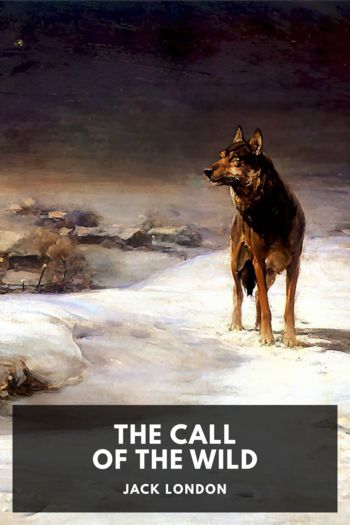Songs of a Sourdough by Robert W. Service (read after TXT) 📕

Description
Songs of a Sourdough is a collection of poems written in 1907 by Robert W. Service while he was working as a bank teller in Whitehorse, Yukon. The best-known poems are those describing life during the Klondike Gold Rush of the late 1890s, especially his ballads “The Shooting of Dan McGrew” and the “Cremation of Sam McGee.”
While some of Service’s work had previously appeared in newspapers and periodicals, Songs of a Sourdough was his first book. Publishers initially questioned the “moral tone” of the work with its bawdy poems depicting not just the hard lives and isolation of Yukon prospectors but also the drinking, gambling, and prostitution that was prevalent in Dawson City. However, despite these reservations, the book was an immediate success. In Canada, there were ten printings and more than 12,000 copies sold in the first year alone. Dozens of additional printings followed in subsequent years, including editions issued in Britain and the United States.
Read free book «Songs of a Sourdough by Robert W. Service (read after TXT) 📕» - read online or download for free at americanlibrarybooks.com
- Author: Robert W. Service
Read book online «Songs of a Sourdough by Robert W. Service (read after TXT) 📕». Author - Robert W. Service
When the sun of life’s a-sinkin’ you can see it ’way above,
On the hill from out the shadder in a glory ’gin the sky,
An’ your mother’s voice is callin’, an’ her arms are stretched in love,
An’ somehow you’re glad you’re goin’, an’ you ain’t a-scared to die;
When you’ll be like a kid again, an’ nestle to her breast,
An’ never leave its shelter, an’ forget, an’ love, an’ rest. The Younger Son
If you leave the gloom of London and you seek a glowing land,
Where all except the flag is strange and new,
There’s a bronzed and stalwart fellow who will grip you by the hand,
And greet you with a welcome warm and true;
For he’s your younger brother, the one you sent away,
Because there wasn’t room for him at home;
And now he’s quite contented, and he’s glad he didn’t stay,
And he’s building Britain’s greatness o’er the foam.
When the giant herd is moving at the rising of the sun,
And the prairie is lit with rose and gold;
And the camp is all a-bustle, and the busy day’s begun,
He leaps into the saddle sure and bold.
Through the round of heat and hurry, through the racket and the rout,
He rattles at a pace that nothing mars;
And when the night-winds whisper, and campfires flicker out,
He is sleeping like a child beneath the stars.
When the wattle-blooms are drooping in the sombre she-oak glade,
And the breathless land is lying in a swoon,
He leaves his work a moment, leaning lightly on his spade,
And he hears the bellbird chime the Austral noon.
The parakeets are silent in the gum-tree by the creek;
The ferny grove is sunshine-steeped and still;
But the dew will gem the myrtle in the twilight ere he seek
His little lonely cabin on the hill.
Around the purple, vine-clad slope the argent river dreams;
The roses almost hide the house from view;
A snow-peak of the Winterberg in crimson splendour gleams;
The shadow deepens down on the karroo.
He seeks the lily-scented dusk beneath the orange-tree:
His pipe in silence glows and fades and glows,
And then two little maids come out and climb upon his knee,
And one is like the lily, one the rose.
He sees his white sheep dapple o’er the green New Zealand plain,
And where Vancouver’s shaggy ramparts frown,
When the sunlight threads the pine-gloom he is fighting might and main
To clinch the rivets of an Empire down.
You will find him toiling, toiling, in the south or in the west,
A child of nature, fearless, frank and free;
And the warmest heart that beats for you is beating in his breast,
And he sends you loyal greeting o’er the sea.
You’ve a brother in the Army, you’ve another in the Church;
One of you is a diplomatic swell;
You’ve had the pick of everything and left him in the lurch;
And yet I think he’s doing very well.
I’m sure his life is happy, and he doesn’t envy yours;
I know he loves the land his pluck has won;
And I fancy in the years unborn, while England’s fame endures,
She will come to bless with pride—the Younger Son.
The cruel war was over—oh, the triumph was so sweet!
We watched the troops returning, through our tears;
There was triumph, triumph, triumph down the scarlet glittering street,
And you scarce could hear the music for the cheers.
And you scarce could see the housetops for the flags that flew between,
The bells were pealing madly to the sky;
And everyone was shouting for the Soldiers of the Queen,
And the glory of an age was passing by.
And then there came a shadow, swift and sudden, dark and drear;
The bells were silent, not an echo stirred.
The flags were drooping sullenly, the men forgot to cheer;
We waited, and we never spoke a word.
The sky grew darker, darker, till from out the gloomy rack
There came a voice that checked the heart with dread:
“Tear down, tear down your bunting now, and hang up sable black;
They are coming—it’s the Army of the Dead.”
They were coming, they were coming, gaunt and ghastly, sad and slow;
They were coming, all the crimson wrecks of pride;
With faces seared, and cheeks red smeared, and haunting eyes of woe,
And clotted holes the khaki couldn’t hide.
Oh, the clammy brow of anguish! the livid, foam-flecked lips!
The reeling ranks of ruin swept along!
The limb that trailed, the hand that failed, the bloody fingertips!
And oh, the dreary rhythm of their song!
“They left us on the veldt-side, but we felt we couldn’t stop,
On this, our England’s crowning festal day;
We’re the men of Magersfontein, we’re the men of Spion Kop,
Colenso—we’re the men who had to pay.
We’re the men who paid the blood-price. Shall the grave be all our gain?
You owe us. Long and heavy is the score.
Then cheer us for our glory now, and cheer us for our pain,
And cheer us as ye never cheered before.”
The folks were white and stricken, and each tongue seemed weighed with lead;
Each heart was clutched in hollow hand of ice;
And every eye was staring at the horror of the dead,
The pity of the men who paid the price.
They were come, were come to mock us, in the first flush of our peace;
Through writhing lips their teeth were all agleam;
They were coming in their thousands—oh, would they never cease!
I closed my eyes, and then—it was a dream.
There was triumph, triumph, triumph down the scarlet gleaming street;
The town was mad, a man was like a boy.
A thousand flags were flaming where the sky and city meet;
A thousand bells were thundering the joy.
There was music, mirth and sunshine; but some eyes shone with regret:
And while we stun with cheers our homing braves,
O God, in Thy great mercy, let us nevermore forget
The graves they left behind, the bitter graves.





Comments (0)